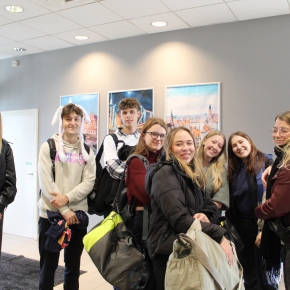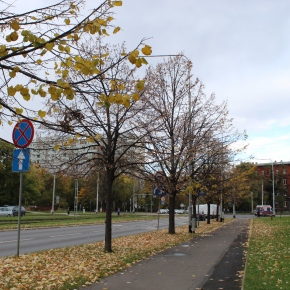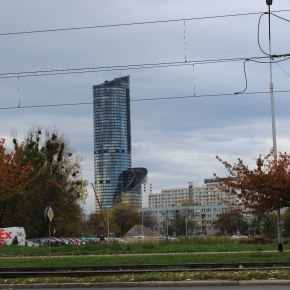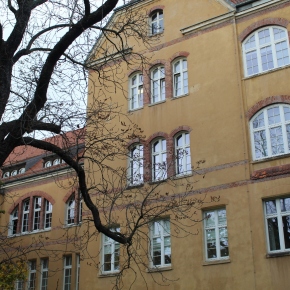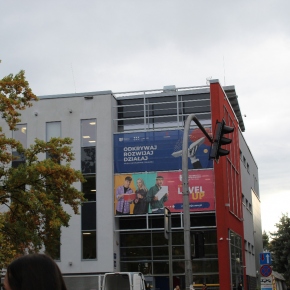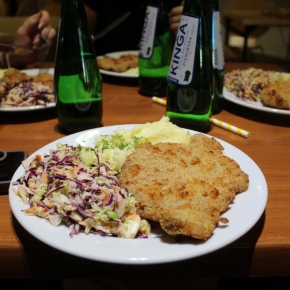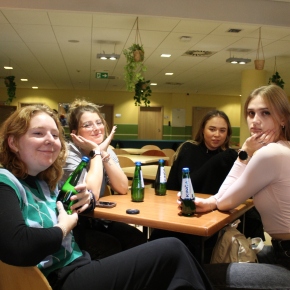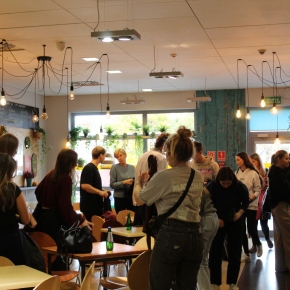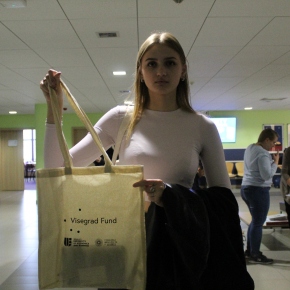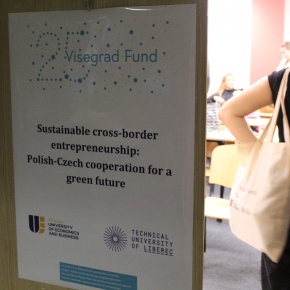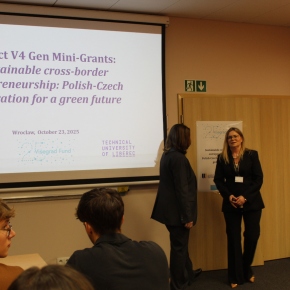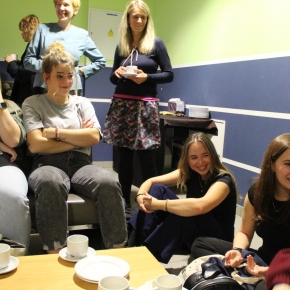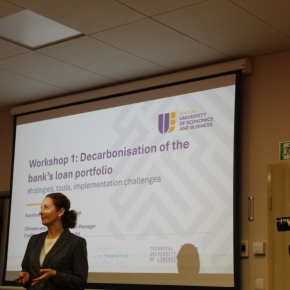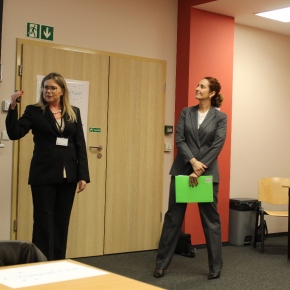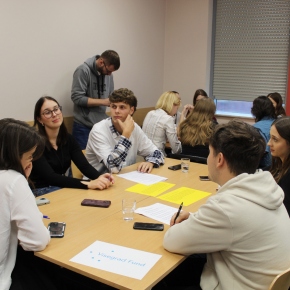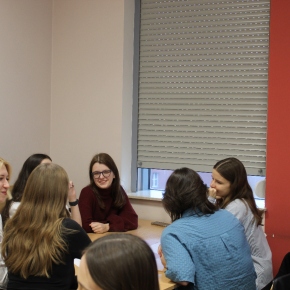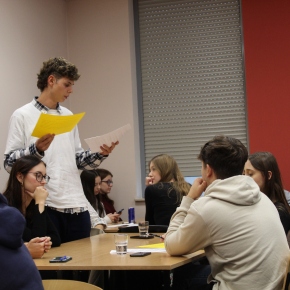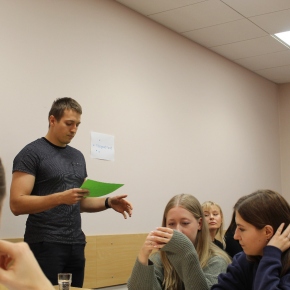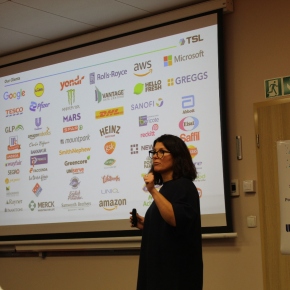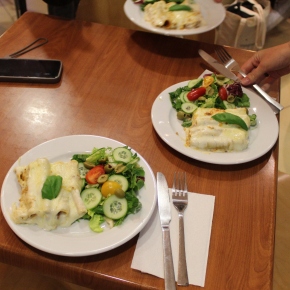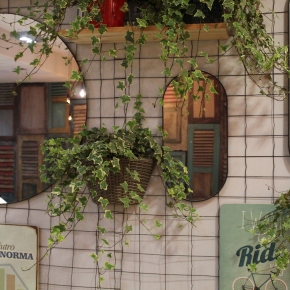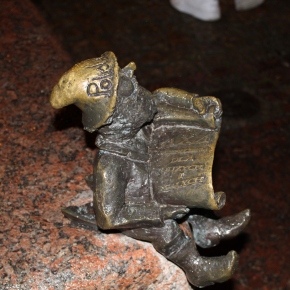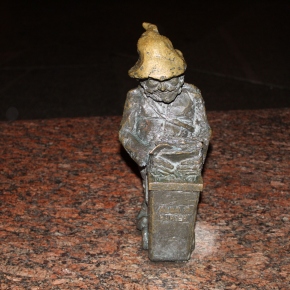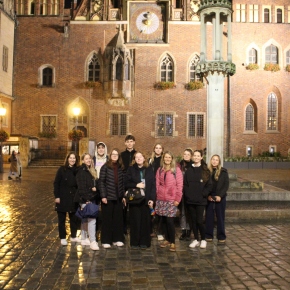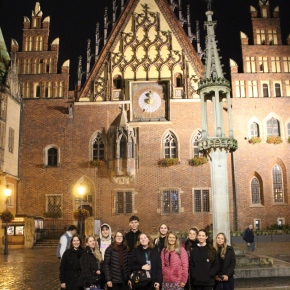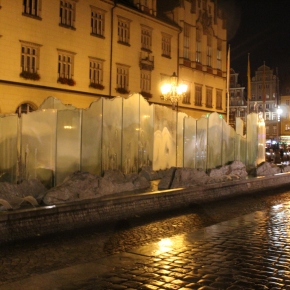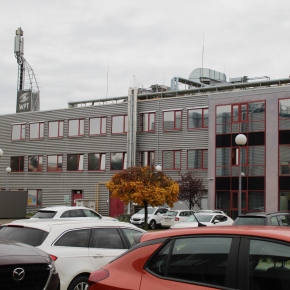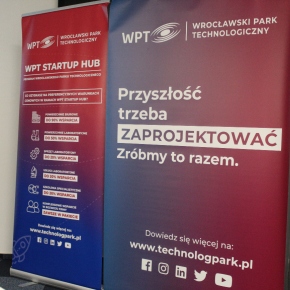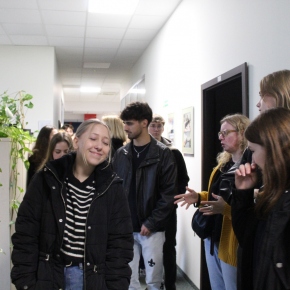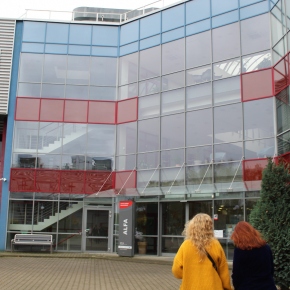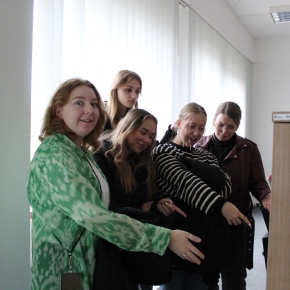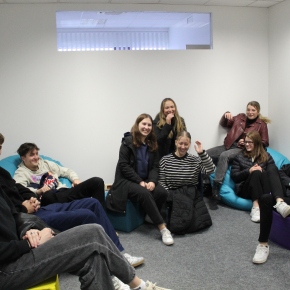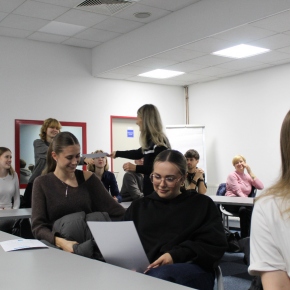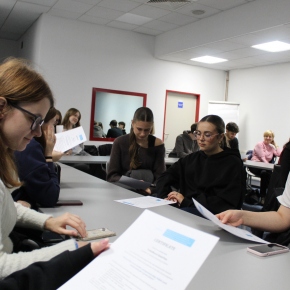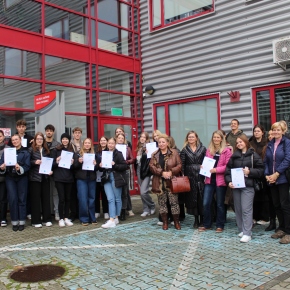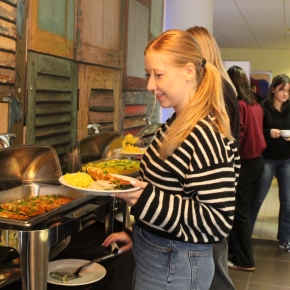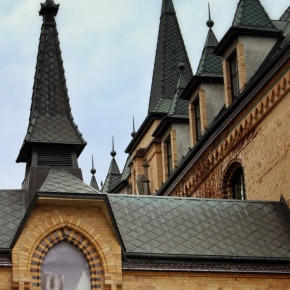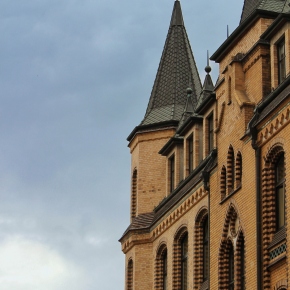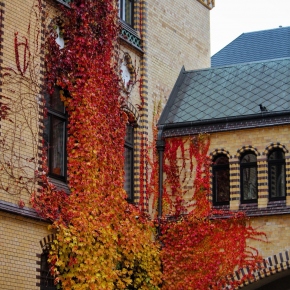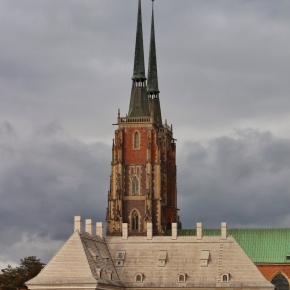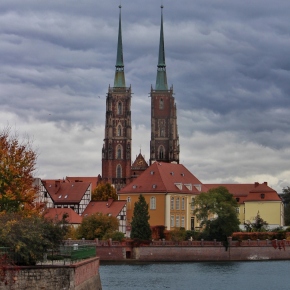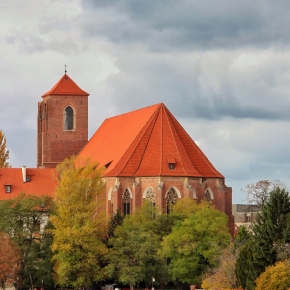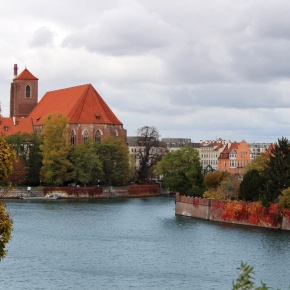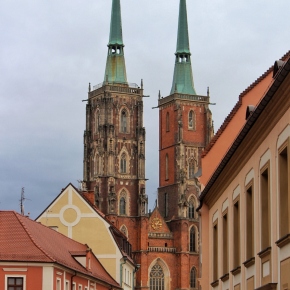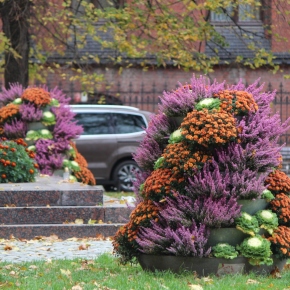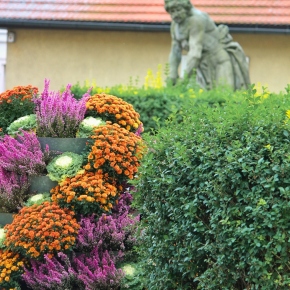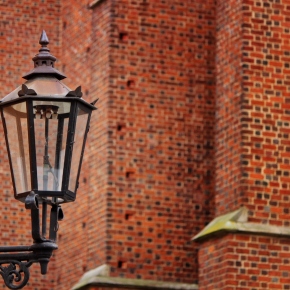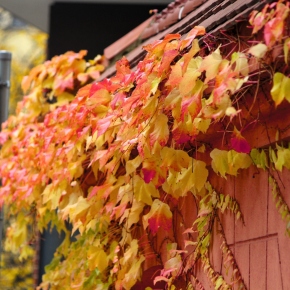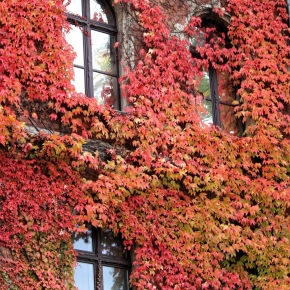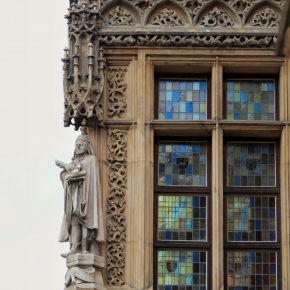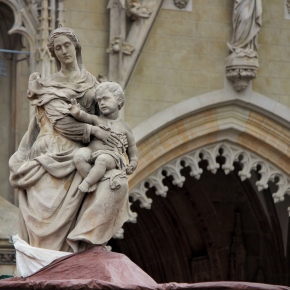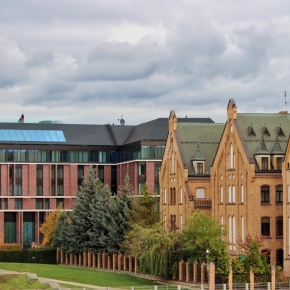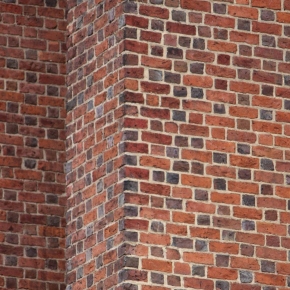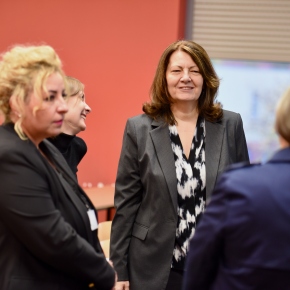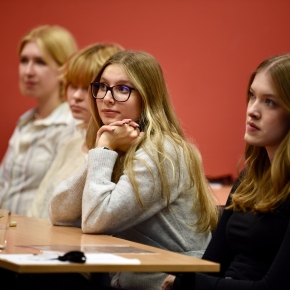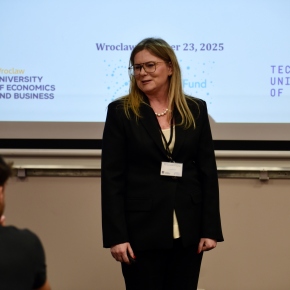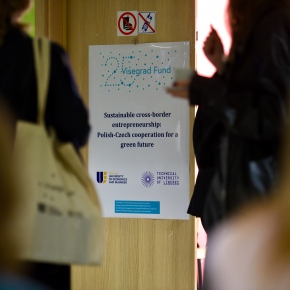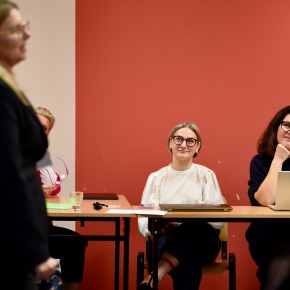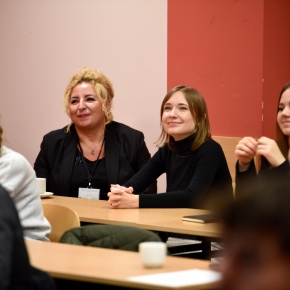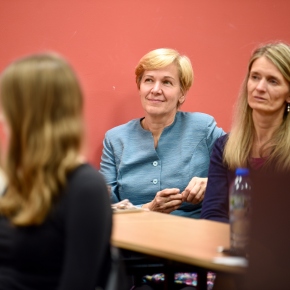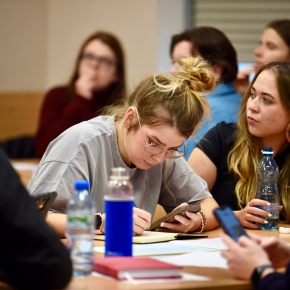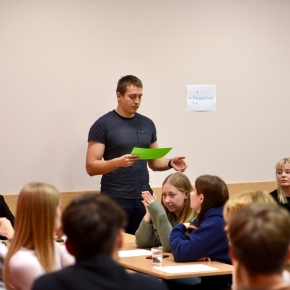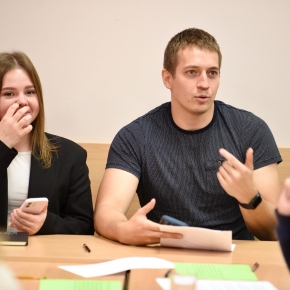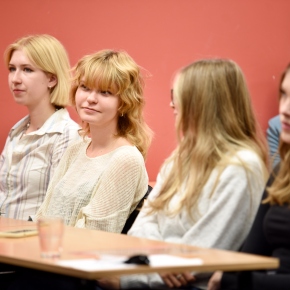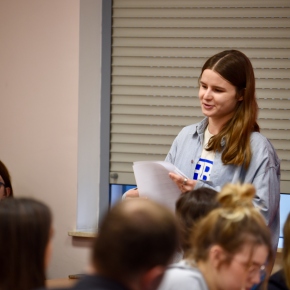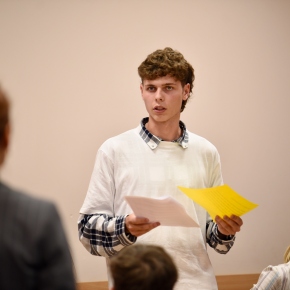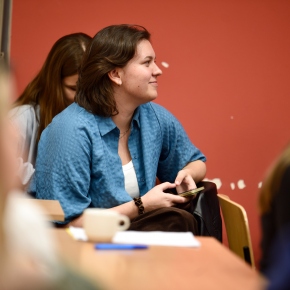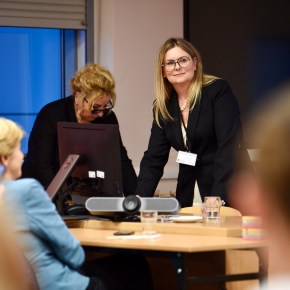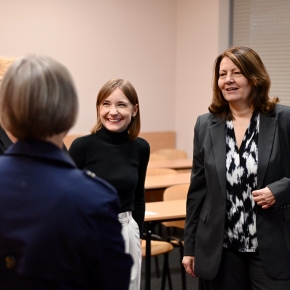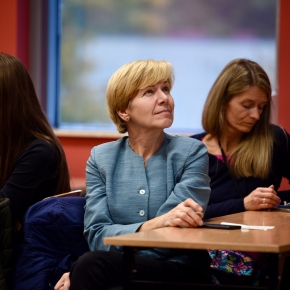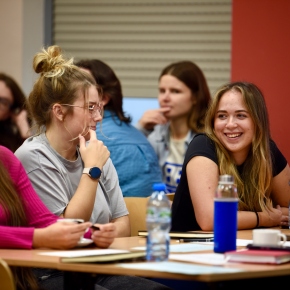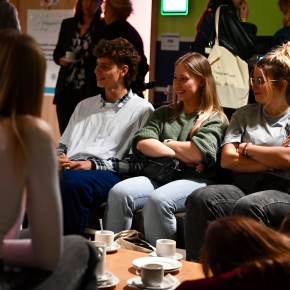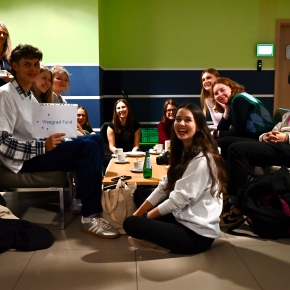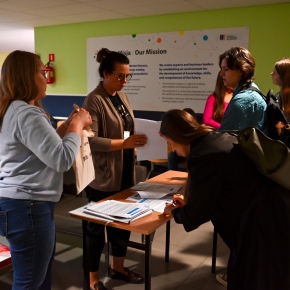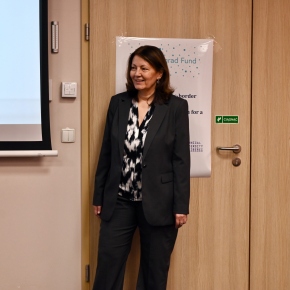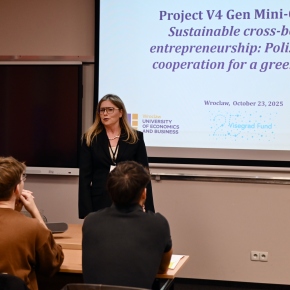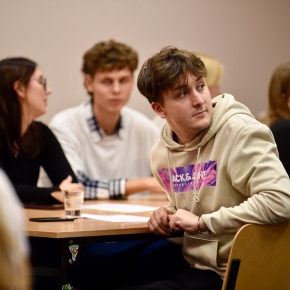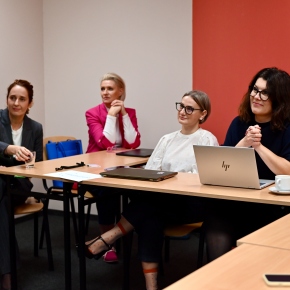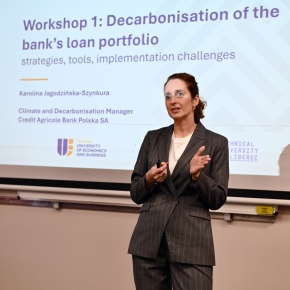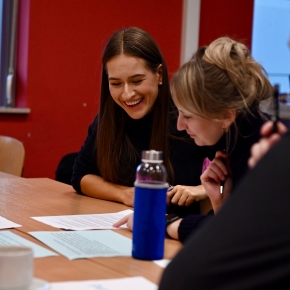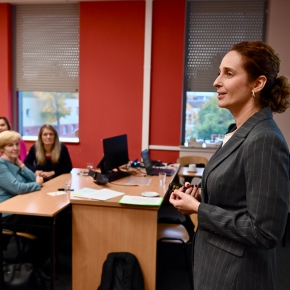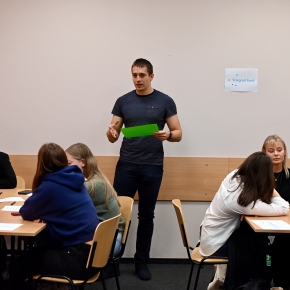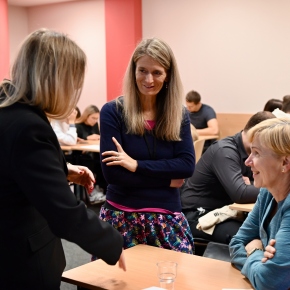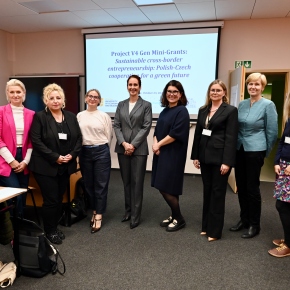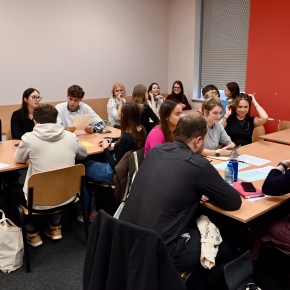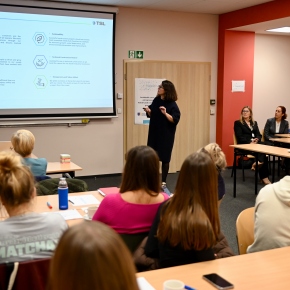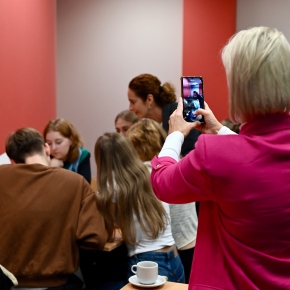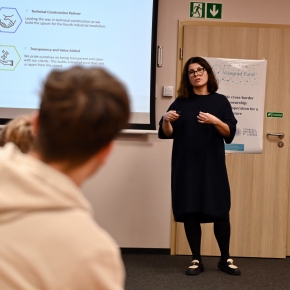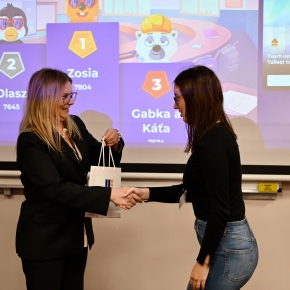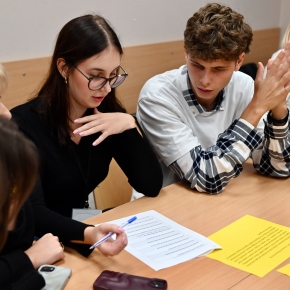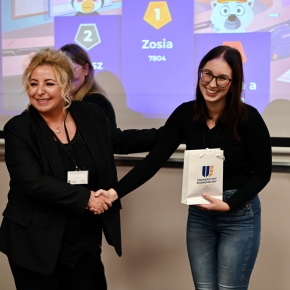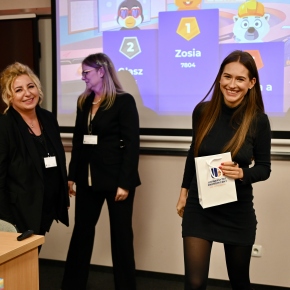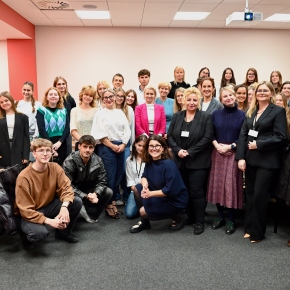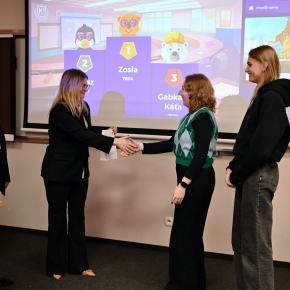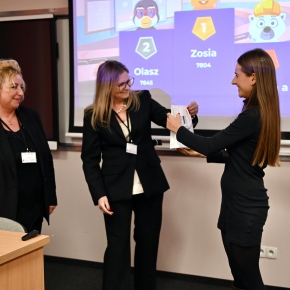29/10
2025
Project between FE TUL and UEW
On Thursday, November 23, 2025, a group of third-year bachelor's students majoring in International Economic Relations with a specialization in Tourism, accompanied by Ing. Lenka Červová, Ph.D., and doc. PhDr. Ing. Jaroslava Dědková, Ph.D., set off to the Polish city of Wrocław for the first part of the project "Sustainable cross-border entrepreneurship: Polish-Czech cooperation for a green future," funded by the International Visegrad Fund under the V4 Gen Mini-Grants program.
Upon arrival in the city, the students checked in at the Premiere Classe Wroclaw hotel, located just a few minutes’ walk from the University of Economics in Wrocław (Uniwersytet Ekonomiczny we Wrocławiu). After dropping off their luggage, they went to the CKU (Center for Continuing Education) building, where they met Anna, the main organizer of the entire project, and had lunch together in the canteen. Then, together with Polish students, they went to the lecture hall, where they were warmly welcomed by the Vice-Rector for International Cooperation, Prof. Dr. hab. Bogusława Drelich-Skulska, who wished them a pleasant stay. This was followed by a workshop in mixed groups of Polish and Czech students on three topics.
The first of these topics was The decarbonization of banks' credit portfolios, i.e., how banks can reduce emissions and improve the climate, for example, by investing in ESG companies. This lecture was led by Karolina Jagodzińska-Szynkura. The students were given a pre-selected bank client from a high-emission sector (steel, transport, agriculture, energy, and cement), a brief description of the client, their plans for the near future, the amount of investment required, and any risks involved. Based on these points, they had to identify 4-5 of the most suitable innovations for improving sustainability and reducing risks in order to obtain the necessary amount of money from the bank.
The second topic was Business by Design by Joanna Kamuda. She discussed the importance of standardizing packaging and product labelling (logo, batch numbers, QR codes and barcodes, certification, etc.) from a single supplier to increase the efficiency of warehouse workers and packers. She emphasized the importance of the so-called Factory Line (one logic, predictable layout of labels, etc.) so that not only employees but also subcontractors and customers can easily find all the important information about the product. She showed a practical example of a product where its labelling and packaging differed depending on the market it was intended for.
The last topic was a presentation on the Capability ESG approach by Monika Ciesielske-Mroz from TSL, a company that deals with technical construction for logistics, the pharmaceutical industry, food processing, and data centers. TSL presents itself as one of the leaders in sustainable technical construction, with the goal of becoming a zero-emission company by 2050.
At the end of this very interesting workshop, a Kahoot! quiz was held on the topics of all three lectures, with students from Czechia, Kateřina Tobolková and Tereza Gabriela Nosková, coming in third place.
After dinner in the school canteen, the students set out to explore Wrocław and look for the little dwarfs scattered around the city.
The next day, after breakfast at the hotel, they moved to the Wrocław Technology Park (Wrocławski Park Technologiczny), which, like Lipo.ink in Liberec, serves as an incubator for start-up projects and small and medium-sized businesses. WPT offers office space, laboratories, and production and storage facilities. After a brief introduction to the site, the group of Czech and Polish students were able to look at the rooms.
After the tour, the students returned to the CKU building, where a buffet lunch was served. Czech students then decided whether they wanted to go shopping and explore the city in daylight or return to Liberec.





